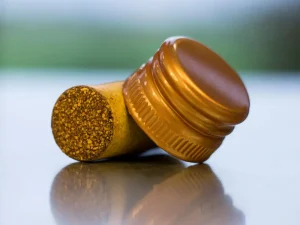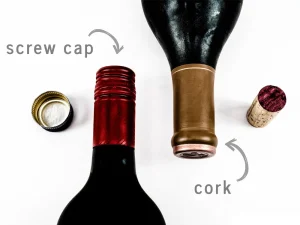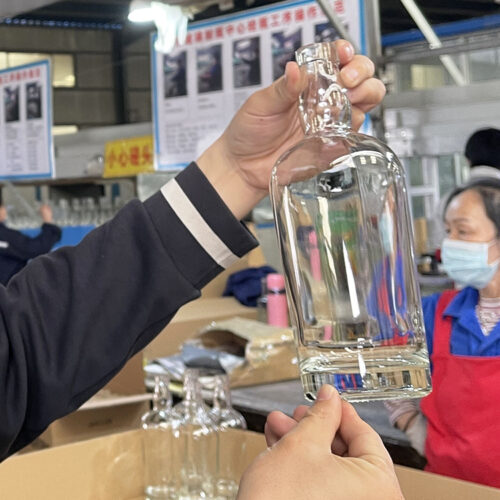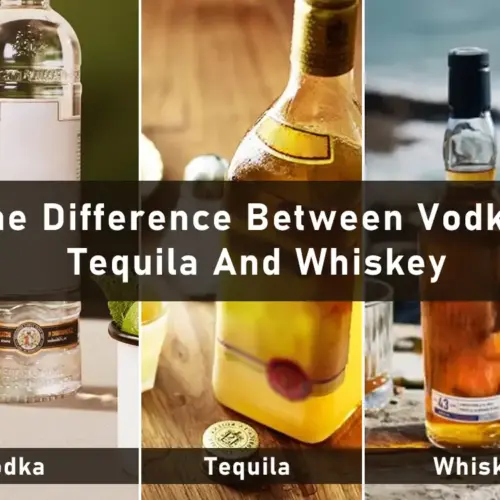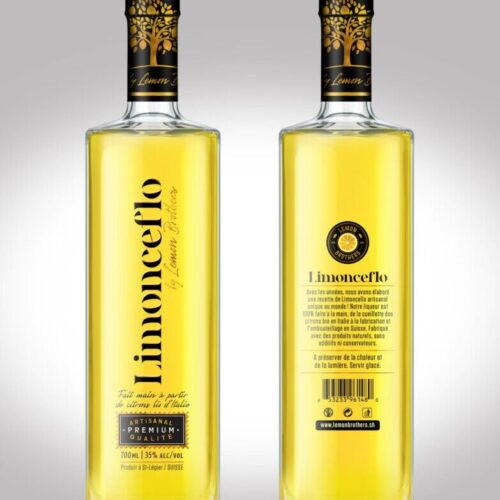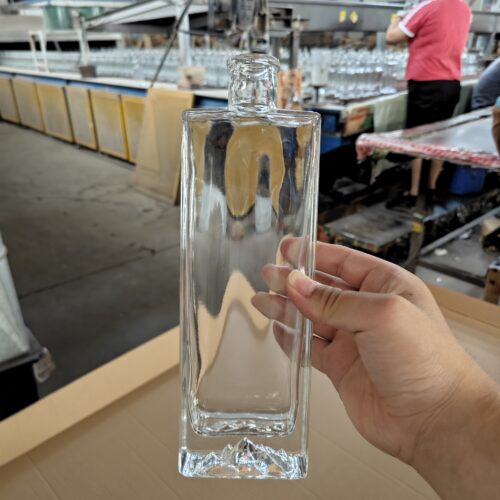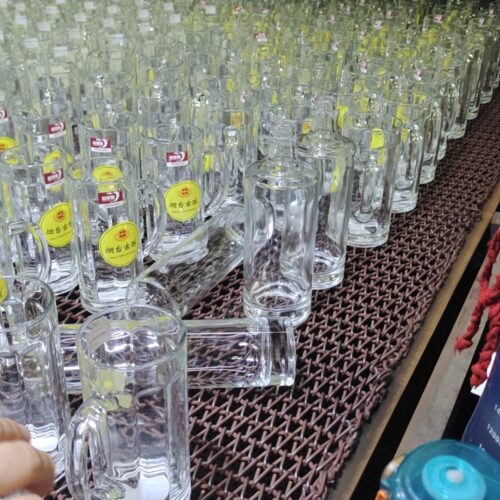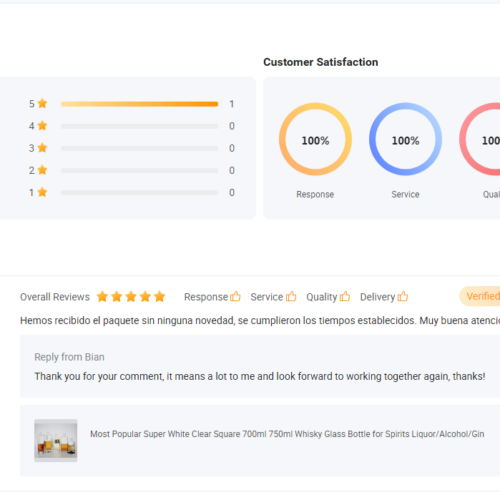When it comes to wine bottles, a common discussion arises on wine corks vs screw caps. Both are two different types of wine bottle closures. Some people consider cork a better option due to its use for centuries. However, some favor screw caps due to their innovative design and features. Everyone debates based on their own experience.
But which one is truly the better option in the real world? This question to this answer is hidden in the differences of the corks and screw caps. To clarify every query in your mind, I will discuss some factors that set them apart. After learning about their differences, you can decide on a reliable option for your needs. So, let’s get started.
What are Corks and Screw Caps
Corks are one of the oldest closures for wine bottles. In ancient times, the Greeks and Romans used the bark of oak trees to seal their wine bottles. From that time until today, corks have never lost their reputation. The reason lies in their porous structure. As corks are the ark of a tree, they have tiny pores that allow proper oxygen exchange.
An oxygen exchange keeps the wine fresh for an extended period. As technology advanced, many changes took place in the design of corks. Now, instead of natural corks, they also come in synthetic form. Synthetic corks are more airtight and have enhanced properties. Besides their properties, corks are related to tradition.
Screw caps are also one of the types of wine bottle closures. But they are inventions of the modern age. Screw caps are made from mainly aluminum metal. The reason is that it is lightweight and easy to open. Moreover, inside the screw cap, a liner made of plastic or tin is also present.
When you tighten the closure, this liner directly fits at the mouth of the bottle. This way, oxygen cannot enter the bottle at all. So, screw caps are more airtight than corks. Such a high level of airtightness maintains the original taste of the wine. So, by using screw caps, you can preserve the wine for a few years.
What are the Differences Between Wine Corks & Screw Caps?
I hope you have grasped the basic idea about corks and screw caps. Although both perform the same function of sealing, so what sets them apart? Let’s dive and explore the main distinction between screw caps and corks.
1- Oxygen Exposure
Oxygen exposure is one of the significant factors that differentiate corks and screw caps. Oxygen exposure refers to the exchange of oxygen inside the wine bottles. Sometimes, it proves helpful in preserving the wine for a long time. However, sometimes oxygen exposure changes the taste of the wine. Mainly, it depends on the type of wine. So, how do the cork and screw caps differ in oxygen exposure?
As I said above, corks are porous. So, they allow a small amount of oxygen to pass inside the bottle. Thus, corks are best for the wine that needs to be preserved for many years. On the flip side, screw caps block oxygen thoroughly. Their design features a liner that provides significant air tightness. So, for the wine that is consumed in a few years, screw caps are best suited.
2- Ease of Use
Ease of use refers to how straightforward it is to open and reseal the closure. Both corks and screw caps vary in this term. HOW? If we discuss corks, they require the corkscrew to open every time. Using a corkscrew sometimes proves risky as it can break the cork if it is too cold. Moreover, once you open a cork, it will not release as before.
This loose seal can contaminate the wine and change the taste readily. Conversely, the modern design of screw caps offers ease of use. These caps are easy to open and do not require any other tool to open. Moreover, after opening, they provide the same airtightness as before. So, you can preserve your wine after use more efficiently with screw caps.
3- Aging Potential
Do you have any idea what aging is? Let me explain. Aging potential refers to the ability of wine to improve flavor and aroma with time. Oxygen is a crucial factor for the aging potential of wine. So, how do corks and screw caps differ in aging potential? As you know, corks have tiny pores that enter oxygen. This oxygen improves the taste of some wines with time.
So, corks are a practical option for improving aging potential. On the flip side, screw caps have an airtight seal. They do not allow oxygen to enter. In simple words, screw caps are not designed to improve the aging potential of a wine. However, they maintain the original flavor of young wines that must be consumed early.
4- Risk of Contamination
It is one of the essential factors to differentiate corks and screw caps. Corks are more prone to taint. Taint is a contamination caused due to TCA (2,4,6-trichloroanisole). TCA forms when natural fungi present in cork react with other chemicals. This is common during the cork manufacturing process. Due to several pores in the cork, this contamination goes inside the wine.
As a result, it changes the taste and makes it dangerous for health. According to a study, about 1-3% of wine bottles get contaminated by cork taint. On the reverse side, screw caps have no risk of contamination. They are made of metal, which is resistant to any fungi attack. Moreover, the airtight sealing of the screw caps also blocks the contamination from outside.
5- Environmental Impact
Both corks and screw caps possess different environmental impacts. For instance, corks are prepared from the bark of oak, a renewable source. Moreover, the manufacturing of different wine corks does not demand high energy sources. Lastly, the cork is a 100% recyclable product. It can be used again and again. All these factors indicate corks do not contaminate our environment.
On the other end, screw caps use aluminum which is not readily available. So, its mining requires more energy. Moreover, unlike corks, aluminum is a non-renewable resource. So, it can cause resource depletion. Although aluminum and plastic are recyclable, they require more energy. So, overall, screw corks negatively affect our environment.
6- Cost and Affordability
Due to differences in martial and other properties, the cost of corks and screw caps vary. If we discuss the cost of corks, it is relatively high. WHY? The reason lies in the production process. Cork is harvested only in Mediterranean areas such as Spain and Portugal. So its transportation cost is higher. Moreover, corks get contaminated easily. So they require special storage equipment.
Lastly, corks are linked to premium wine types, increasing their cost. On the opposite side, screw caps are budget-friendly. They have low production costs due to the easy availability of plastic and aluminum. Moreover, screw caps do not demand a storage chamber as they do not contaminate. In the end, screw caps are also cost-friendly due to association with typical wines.
Which Is Better for Different Types of Wine?
Which is better for different types of wine? It is very challenging to choose the proper closure for the right wine. I have discussed several types of wines with suitable closures to simplify things. Take a short glimpse at the table!
| Wine Type | Corks | Screw Caps |
| Red Wines | Ideal for aging (e.g., Cabernet and Sauvignon). | Suitable for young, fruity reds (e.g., Beaujolais). |
| White Wines | Ideal for fuller-bodied whites that benefit from aging (e.g., Chardonnay). | Perfect for crisp, fresh whites (e.g., Sauvignon Blanc). |
| Rosé Wines | Corks are not suitable for Rose Wines. | Ideal for preserving freshness. |
| Sparkling Wines | A traditional choice for Champagne and aging. | Used for young, fresh wines (e.g., Prosecco). |
| Dessert/Fortified Wines | Best for long-term aging (e.g., Port, Sauternes). | Rarely used. |
Frequently Asked Questions
How to tell if wine has a cork or screw top?
There are several ways to check if wine has a cork or screw top. For example, corks are always covered with plastic capsules, while screw caps are not. You can also check it by twisting it. Corks cannot twist, while screw caps easily twist.
Does a screw cap mean cheap wine?
Screw caps were first used for soft drinks and cheap wines. So, mainly, they are associated with cheap wine. But this is not always true. For example, in Australia and New Zealand, screw caps are used for expensive wines.
Is wine better with a cork or screw top?
Well, it depends on the nature and type of wine. Screw caps keep the young wine fresh for 2-3 years. However, it is unsuitable for wines that require aging potential for their flavor. The reason is that screw caps do not allow oxygen to pass, which is crucial for those wines.
Conclusion
Corks and screw caps are two different types of wine bottle closures. In this article, I have explained how they vary in several items. For example, corks are made with the bark of oak trees. They can preserve the wine for a long time. Moreover, corks do not harm our environment due to their eco-friendly nature.
However, corks are more costly and get contaminated readily. On the flip side, screw caps are made with aluminum, plastic, and tin. These closures can preserve the wine for a shorter period. But they offer the same air tightness after opening. Lastly, screw caps are cost-effective and do not contaminate the wine.

